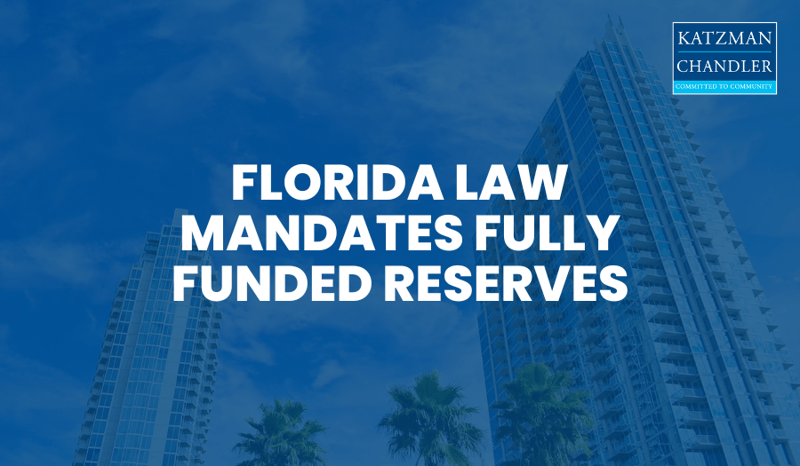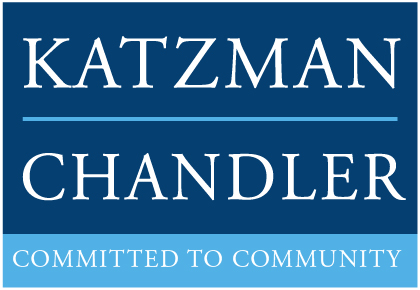
Approximately a year after the devastating collapse of Champlain Towers, legislative changes were enacted with the goal of preventing any similar future tragedy. One such legislative change prohibits members of a Condominium or Cooperative Association from voting to partially or fully waive reserves on or after December 31, 2024. This new statutory change also prohibits owners from voting to use reserve funds for any purpose other than that for which they are intended as of the same date. Essentially, these statutory changes create mandatory reserve funding obligations for condominiums and cooperatives.
What impacts will mandatory reserve funding have on Condos and Co-Ops?
The mandatory full-funding of reserves will not only result in larger Association annual budgets, but will also result in Association reserve accounts with significantly higher balances as Associations that previously voted to partially or fully waive reserves begin funding and collecting full reserves. This increase in monies held for reserves brings with it a new level of responsibility for Boards of Directors with respect to proper handling, safeguarding and even reasonable investment of those funds. Board Members will need to be more vigilant than ever in terms of implementing and overseeing these reserve funds.
Initially, Boards will need to ensure that reserves are properly funded. This will begin with affected Condominiums and Cooperatives obtaining a Structural Integrity Reserve Study no later than December 31, 2024. Once the reserve study is complete, the Board may set out to create an Annual Operating Budget for the ensuing year that contains adequate and fully-funded reserves pursuant to the study.
What other budgetary challenges are Associations likely to face?
On top of the increase expected from the statutory mandate to fully-fund reserves, budgets are also expected to be negatively impacted by the current economic climate, including rising inflation and insurance premiums, as well as increasing costs of goods, services and materials. Overall, there is a general consensus that it is going to become more expensive to live in a Condo or Co-op in the very near future. Unfortunately, it is likely that this increased expense will also translate into a rising number of delinquent accounts.
How can Associations meet these challenges?
Plan now for future collection needs.
In order to meet their fiduciary duties and obligations to the Associations and members that they represent and serve, Boards will need to prepare now to ensure timely and efficient collection of budgeted assessments. Boards are strongly encouraged to prepare now for the possibility of increased delinquencies in the future by reviewing (and revising, if necessary) their collection policies with their Association’s legal counsel. A clear and unambiguous collection policy that is circulated to all members of the Association will allow members to understand the Association’s duties and obligations to collect delinquent assessments, and will also provide an overview of the collection process.
Consult with Association Counsel and a Licensed Financial Professional with regard to increased reserve balances.
In addition to the need to collect these increased maintenance fees, it is important to note that in complying with the new statutory mandates regarding reserve funding, Associations are likely to have reserve accounts with much larger balances than in the past. Boards are encouraged to consult with their Association’s legal counsel regarding their fiduciary obligations with respect to those funds, and also to consult with a licensed financial professional to discuss potential options for investing those funds to the ultimate benefit of the Association and its membership.
Begin the journey to full funding now.
While mandatory full-funding of reserves is still a couple of years away (the revised statute prohibits members from waiving reserves after December 31, 2024), Condominium and Cooperative Boards are strongly encouraged to begin their Association’s journey toward full reserves sooner, rather than later. If your Association previously waived reserves (in whole or in part), you are encouraged to consult with the Association’s legal counsel and financial professional(s) to begin funding reserves (in full or partially at increasing percentages) over the next two (2) years. Doing so will relieve the financial burden to be absorbed by the membership when full-funding becomes mandatory and waiver is no longer an option.
Consider Lending Options to help meet current Association obligations.
Condominiums and Cooperatives that have not previously maintained reserves may wish to discuss with legal counsel the possibility of borrowing funds to make necessary repairs to the property now that may have the effect of decreasing the total amount of reserves needed when full-funding becomes a requirement. By way of example, if the Association’s roof is in need of replacement, borrowing funds to complete the roof replacement now will have the effect of extending the number of years under the roof replacement category for reserves when full funding is mandatory. Another possible option to discuss with legal counsel is borrowing monies sufficient to fully fund reserve accounts now, which will allow repayment of that loan over a number of years and lessen the financial burden of fully funding on the members.
Overall, it is likely that statutorily mandated full reserves are here to stay in Florida. With professional advice, proper planning, diligent collection efforts and financially prudent investment strategies, Condo and Co-op Boards can take action today that is likely to result in financially and physically stronger communities in the future.
If you would like to learn how your Association can collect delinquent accounts at NO COST to the Association or its paying members, please visit www.KatzmanChandler.com to request a Free, No Obligation Consultation to discuss our unique Collect4Free Delinquent Account Collection Program.


